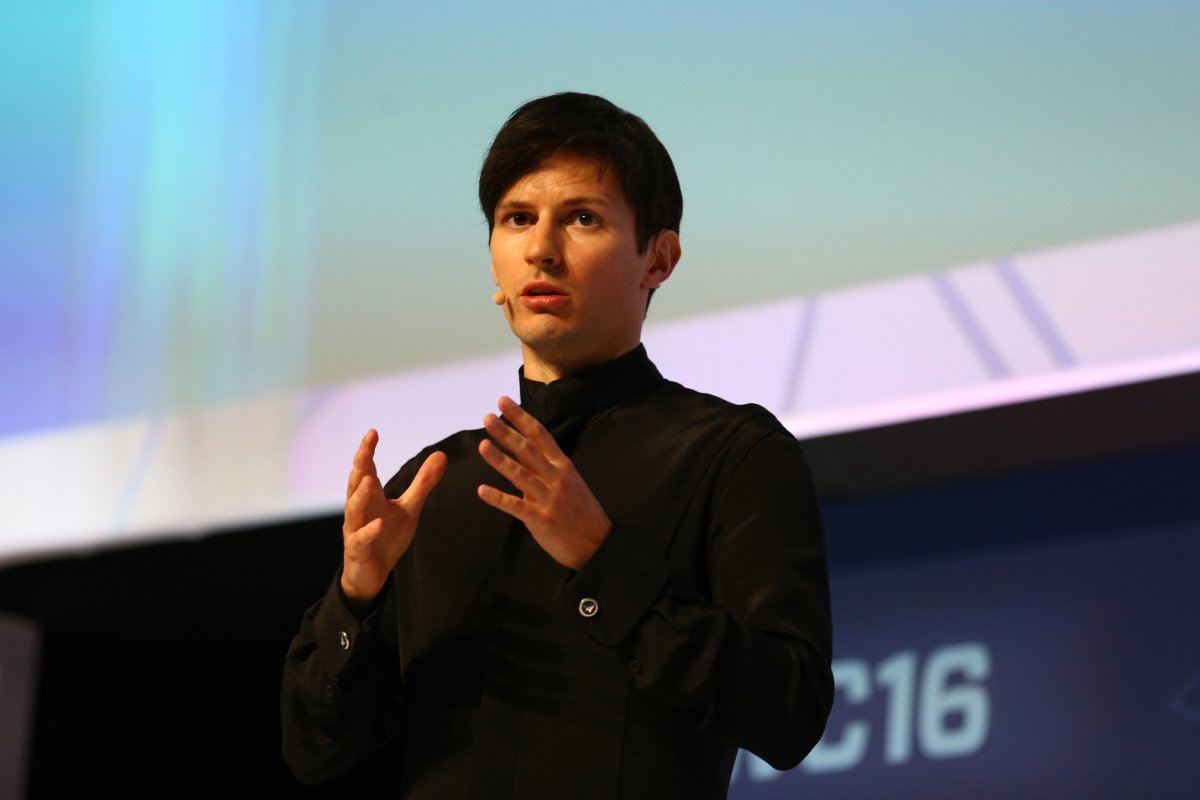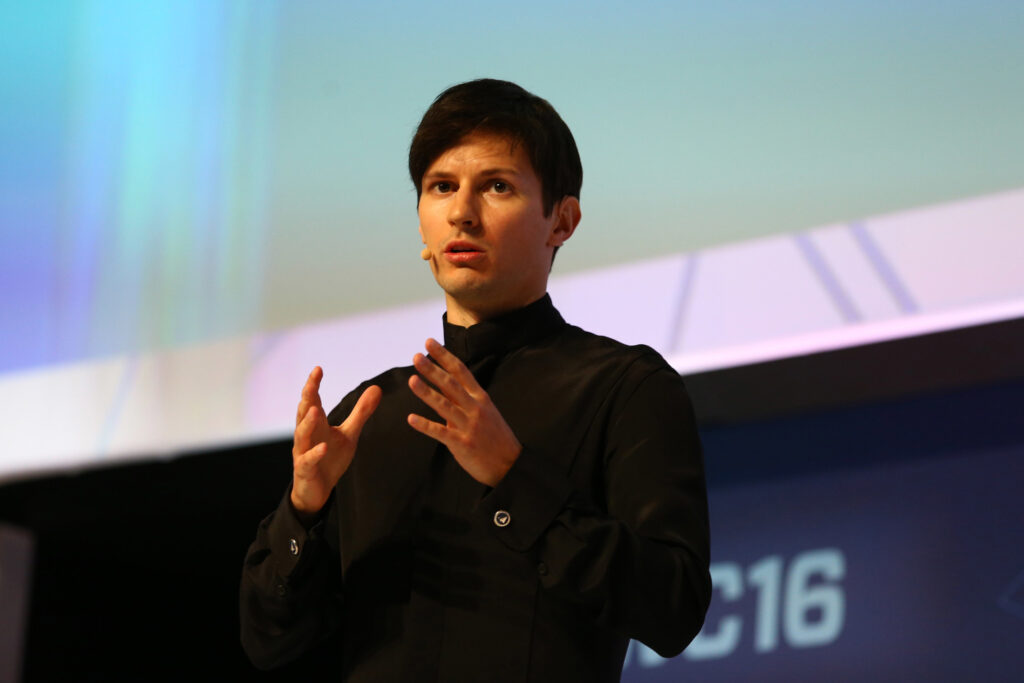The US government wanted to introduce a so-called “backdoor” into Telegram to potentially spy on users, according to the messaging app's founder.
Pavel Durov, who founded Telegram in 2013 and is its current CEO, made the claim in an interview with Tucker Carlson that aired Tuesday night.
Russian-born Durov first rose to prominence as the co-founder of VKontakte (VK), often referred to as the Russian alternative to Facebook. He told Karlsson that he resigned from VK and fled Russia in 2013 after being pressured by the Kremlin to share personal information on Ukrainian pro-democracy protesters.
Mr. Durov denied that there was any connection between Telegram, which is popular in Russia and used by many pro-Kremlin military bloggers, and the government of Russian President Vladimir Putin. But he also claimed that he had felt “pressure” from the US government in the past.
“Every time we come to the United States, the FBI and security agencies “We're getting a lot of attention from people,” he told Carlson.

Photo courtesy of AOP.Press/Corbis, Getty Images
newsweek The FBI and the U.S. Department of Defense were contacted for comment via email Wednesday. Telegram's press service was also contacted via messages on the app.
Durov said that the last time he went to the United States, “I brought an engineer who works for Telegram, and there was an attempt by cybersecurity personnel and agents to secretly hire my engineer behind my back. …'' he said.
Mr. Carlson asked Mr. Durov to clarify whether the U.S. government was trying to hire his engineers, to which Mr. Durov replied, “That's my understanding.”
“Would you like to write code for them or break into Telegram?” Carlson asked.
“They wanted to know which open source libraries were integrated into the Telegram app, on the client side,” Durov said. “And they were trying to convince him to use certain open source tools that would then be incorporated into Telegram's code, which would act as a backdoor, as I understand it.”
“Backdoor” is a term used to describe methods used to bypass authentication to access protected data.
Episode 94 Social media app Telegram has over 900 million users worldwide. Its founder, Pavel Durov, was interviewed on camera for the first time in almost a decade at his office in Dubai. pic.twitter.com/NEb3KzWOg8
— Tucker Carlson (@TuckerCarlson) April 16, 2024
Mr. Carlson then asked Mr. Durov whether there were backdoors in the messaging app.The US government may be able to spy on people who use Telegram. ”
“So does the U.S. government, or any government, because a backdoor is a backdoor regardless of who's using it. That's true,” he said.
An American journalist later described Durov's accusations as “a bit surprising to hear” and “offensive”. “Are you sure that happened?” Carlson asked.
“Yes, there is no reason for my engineer to make up a story,” Durov replied.
The CEO said he believes the engineer's words because he has “personally experienced similar pressures in the US every time I go there.”
“Two FBI agents will meet you at the airport and ask you questions,” Durov said. “One time, I was having breakfast at 9 a.m. and the FBI showed up at the house I was renting. And it was quite a surprise. And we got too much attention here. I thought it might be.”
Ms. Carlson asked whether investigators visited Durov because they believed he might have committed a crime.
“No, they wanted to know more about Telegram. They knew I had left Russia. They knew what we were doing, but they wanted to know more. And my understanding is they wanted to build a relationship,” he said.
Durov continued, “I understand that they were doing their job, but it was probably not the best environment for us, running a social media platform that values privacy.'' We don't want to focus on our jobs, we want to focus on our jobs.'' When it comes to that kind of government relationship. ”
The head of technology then claimed to have received letters from two members of Congress following the Jan. 6, 2021, riot at the U.S. Capitol. He said one letter was from a Democrat requesting data on Telegram users who allegedly participated in the riot. Durov said the other letter was from a Republican who said he would not provide any data related to the uprising.
Both letters warned Mr. Durov that failure to comply with the demands would violate the U.S. Constitution. Mr. Durov told Mr. Carlson that Telegram's response was to “ignore it because it is a very complex issue that concerns the internal politics of the United States.”
rare knowledge
Newsweek is committed to challenging conventional wisdom, finding common ground and finding connections.
Newsweek is committed to challenging conventional wisdom, finding common ground and finding connections.


